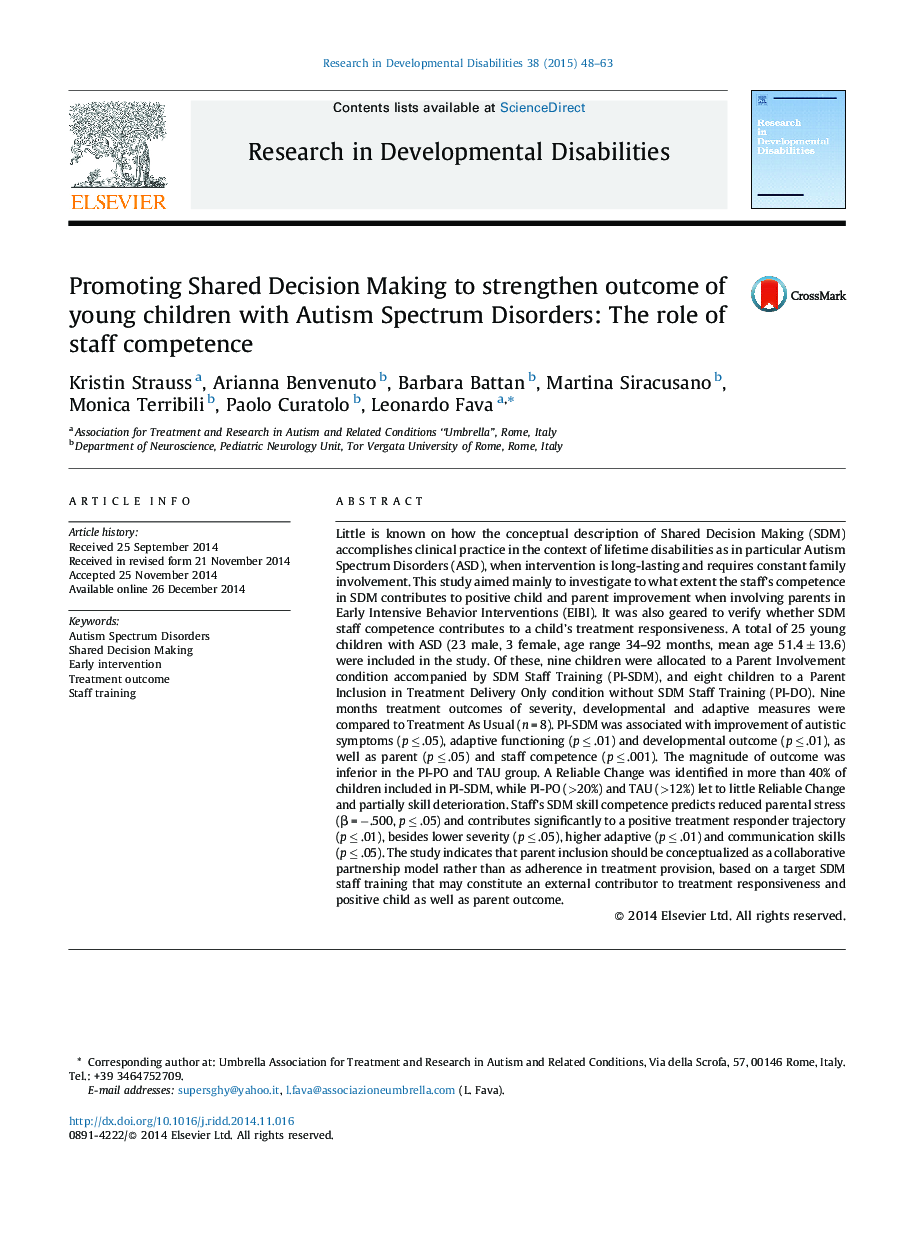| Article ID | Journal | Published Year | Pages | File Type |
|---|---|---|---|---|
| 371210 | Research in Developmental Disabilities | 2015 | 16 Pages |
•SDM skill training to parent inclusion in EIBI evaluated against parent inclusion only and TAU in children with ASD.•SDM skill training leads to more clinically important improvements than other conditions.•High SDM staff competence and gradual parent inclusion may facilitate improvement best.•Reliable Change index applied to identify (non-)responders to intervention.•SDM staff competence contributes significantly to a responder trajectory.
Little is known on how the conceptual description of Shared Decision Making (SDM) accomplishes clinical practice in the context of lifetime disabilities as in particular Autism Spectrum Disorders (ASD), when intervention is long-lasting and requires constant family involvement. This study aimed mainly to investigate to what extent the staff's competence in SDM contributes to positive child and parent improvement when involving parents in Early Intensive Behavior Interventions (EIBI). It was also geared to verify whether SDM staff competence contributes to a child's treatment responsiveness. A total of 25 young children with ASD (23 male, 3 female, age range 34–92 months, mean age 51.4 ± 13.6) were included in the study. Of these, nine children were allocated to a Parent Involvement condition accompanied by SDM Staff Training (PI-SDM), and eight children to a Parent Inclusion in Treatment Delivery Only condition without SDM Staff Training (PI-DO). Nine months treatment outcomes of severity, developmental and adaptive measures were compared to Treatment As Usual (n = 8). PI-SDM was associated with improvement of autistic symptoms (p ≤ .05), adaptive functioning (p ≤ .01) and developmental outcome (p ≤ .01), as well as parent (p ≤ .05) and staff competence (p ≤ .001). The magnitude of outcome was inferior in the PI-PO and TAU group. A Reliable Change was identified in more than 40% of children included in PI-SDM, while PI-PO (>20%) and TAU (>12%) let to little Reliable Change and partially skill deterioration. Staff's SDM skill competence predicts reduced parental stress (β = −.500, p ≤ .05) and contributes significantly to a positive treatment responder trajectory (p ≤ .01), besides lower severity (p ≤ .05), higher adaptive (p ≤ .01) and communication skills (p ≤ .05). The study indicates that parent inclusion should be conceptualized as a collaborative partnership model rather than as adherence in treatment provision, based on a target SDM staff training that may constitute an external contributor to treatment responsiveness and positive child as well as parent outcome.
